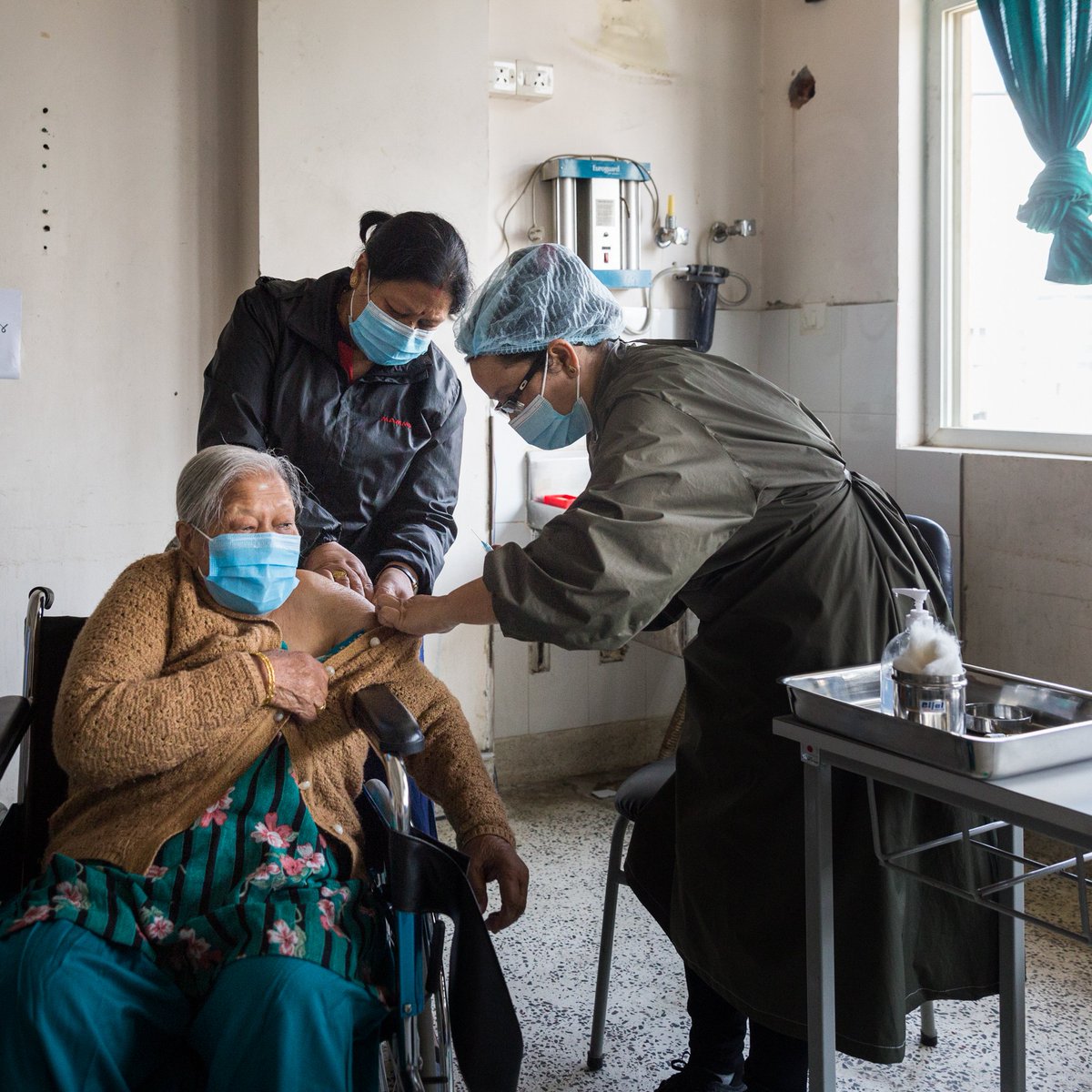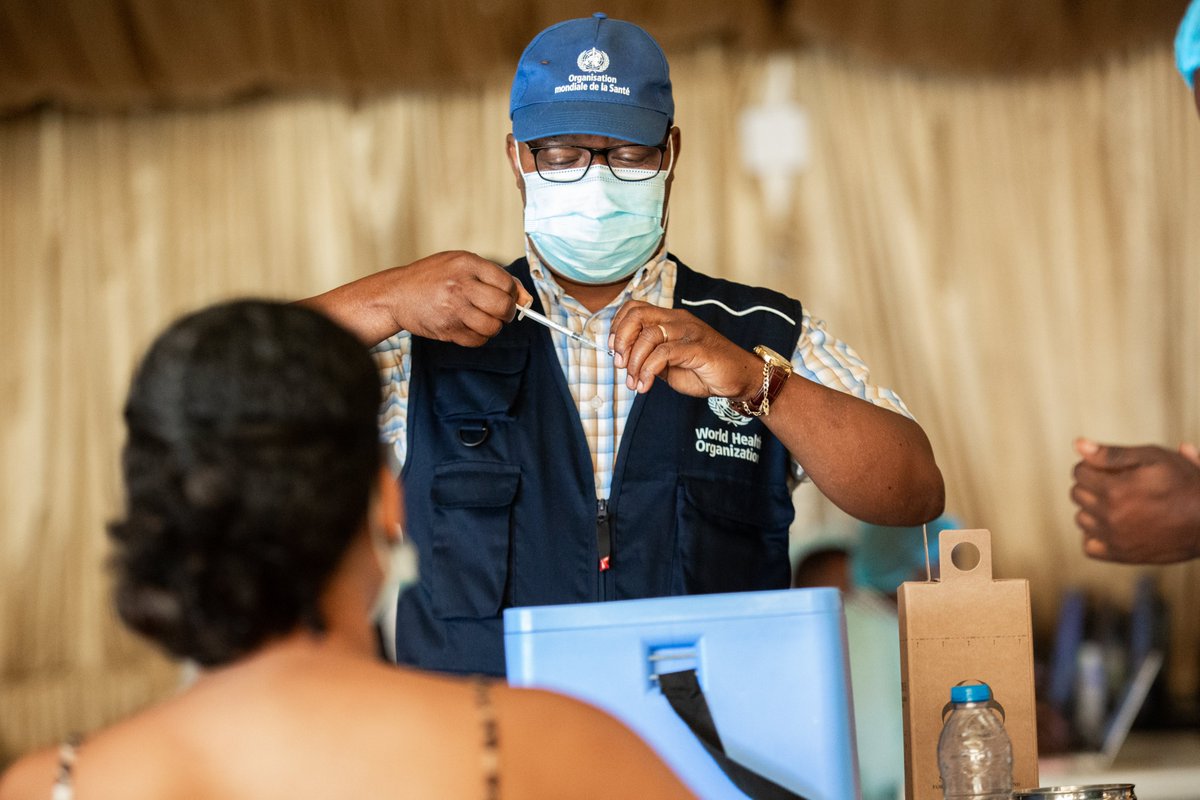
1 year ago, as the 🌐’s richest countries rolled out #COVID19 vaccines while the poorest countries watched on, WHO set an ambitious but attainable 🎯 to vaccinate 7⃣0⃣% of the population of every country by the mid-2022.
The deadline is upon us, have we achieved #VaccinEquity?
The deadline is upon us, have we achieved #VaccinEquity?
#COVID19 vaccination has saved almost 2⃣0⃣ million
lives in 2021 alone, according to a new study in @TheLancetInfDis
👉 bit.ly/3OxL6y7
lives in 2021 alone, according to a new study in @TheLancetInfDis
👉 bit.ly/3OxL6y7

Hundreds of thousands of deaths could have been averted if the 🌎🌍🌏 had reached WHO's target to vaccinate 40% of the population of every country against #COVID19 by the end of 2021. Most of these lives could have been saved in low income countries:
👉 bit.ly/3OxL6y7
👉 bit.ly/3OxL6y7

1⃣3⃣6⃣ countries have not yet reached 70% #COVID19 vaccine coverage.
Millions of people in low & middle income countries - that’s healthcare workers 👩🏾⚕️, grandparents 👴🏼, people with immunocompromised conditions 🧍🏻♂️, have not completed the primary series of vaccinations.
Millions of people in low & middle income countries - that’s healthcare workers 👩🏾⚕️, grandparents 👴🏼, people with immunocompromised conditions 🧍🏻♂️, have not completed the primary series of vaccinations.
With #COVID19 transmission continuing the risk of new, more dangerous and deadly variants emerging remains very real, posing a continued threat to lives, livelihoods and the global economy.
👉 bit.ly/3QZ0zsu
👉 bit.ly/3QZ0zsu

Vaccine effectiveness is waning over time: this means it is even more crucial that in all countries 100% of at-risk groups should be vaccinated and boosted against #COVID19 as soon as possible.
https://twitter.com/WHO/status/1542146449403744258?s=20&t=IXBx9fCLrKMcU0NKGZ30AA
WHO as part of the #COVID19 Vaccine Delivery Partnership is supporting countries furthest behind to turn vaccines into vaccinations asap:
✅by getting vaccines to where people are
✅through mobile units, 🚪-to-🚪 campaigns
✅by mobilizing community leaders
bit.ly/3neA7xu
✅by getting vaccines to where people are
✅through mobile units, 🚪-to-🚪 campaigns
✅by mobilizing community leaders
bit.ly/3neA7xu

The #COVID19 Vaccine Delivery Partnership is doing this by:
1️⃣ Helping countries access funding to facilitate delivery
2️⃣ Engaging with political leaders
3️⃣ Providing technical assistance such as advising on targeting vaccination campaigns at at risk populations
1️⃣ Helping countries access funding to facilitate delivery
2️⃣ Engaging with political leaders
3️⃣ Providing technical assistance such as advising on targeting vaccination campaigns at at risk populations

Science has given us powerful tools to prevent, detect and treat #COVID19. It’s up to us to use them well.
https://twitter.com/WHO/status/1538998086005051392?s=20&t=szMJJL72V9k0cALwE0SfHw
• • •
Missing some Tweet in this thread? You can try to
force a refresh














